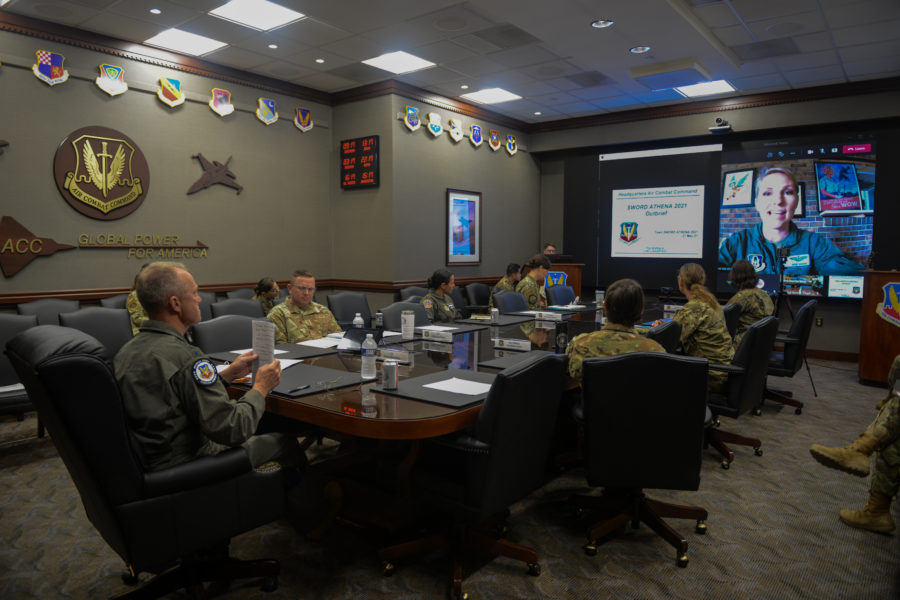Thanks to a grassroots effort, new mothers serving in Air Combat Command can now use Bluetooth-enabled breast pumps in secure facilities—the latest in a series of USAF steps to remove barriers to service.
Capt. Jennifer McNeill, an F-15E Strike Eagle pilot at Seymour Johnson Air Force Base, N.C., discussed the challenges involved with leaving her secure facility to find a lactation room and the potential impact her absence has on her team, during ACC’s second Sword Athena 2021 conference earlier this year.
McNeill submitted an administrative package to let her use a Bluetooth-enabled pump in a secure facility, which can be used discreetly under her uniform, allowing her to participate in pre-mission briefings and debriefs, even while pumping.
“These changes have allowed me the opportunity to maintain my status as a tactical asset while not feeling pressure to give up on breastfeeding,” McNeill said in the release.
Former ACC Command Surgeon Maj. Gen. Sharon R. Bannister signed a memo in June designating breast pumps as a medical device, the release states. After a technical analysis, ACC Director of Intelligence Brig. Gen. Steven M. Gorski and the Special Access Program office authorized ACC Airmen to use the device in secure facilities. As part of the new process, which is similar to the use of other personal electronic devices, Airmen must secure a user agreement with their facility manager before using the devices.
“Classifying breast pumps as medical devices that can be brought into any workplace shows women in the Air Force that their choice to have a family isn’t a burden to be shouldered, but a direction that is encouraged and endorsed by Air Force leadership,” McNeill said in the release. “It also makes a statement to all Airmen that the Air Force values family, inclusivity, and breaking down gender barriers to service not just on paper, but in practice.”
This was not the only change spurred by the event. ACC boss Gen. Mark A. Kelly also signed a memorandum approving command civilians to be compensated for nursing breaks during a child’s first year.
“These initiatives are perfect examples of what I asked Sword Athena to tackle, and it highlights ACC’s commitment to families,” Kelly said in the release. “The work isn’t done yet. We continue to remove barriers for our new mothers to stay tactical and on mission, and at the same time take care of their families.”
The efforts are the latest in a series of changes aimed at making it easier for women to stay in service after they have children. Others changes include adjusting height requirements for pilot applicants, developing maternity flight suits, and allowing missileers, remotely piloted aircraft pilots, and some other pilots to continue to work during their pregnancy.

